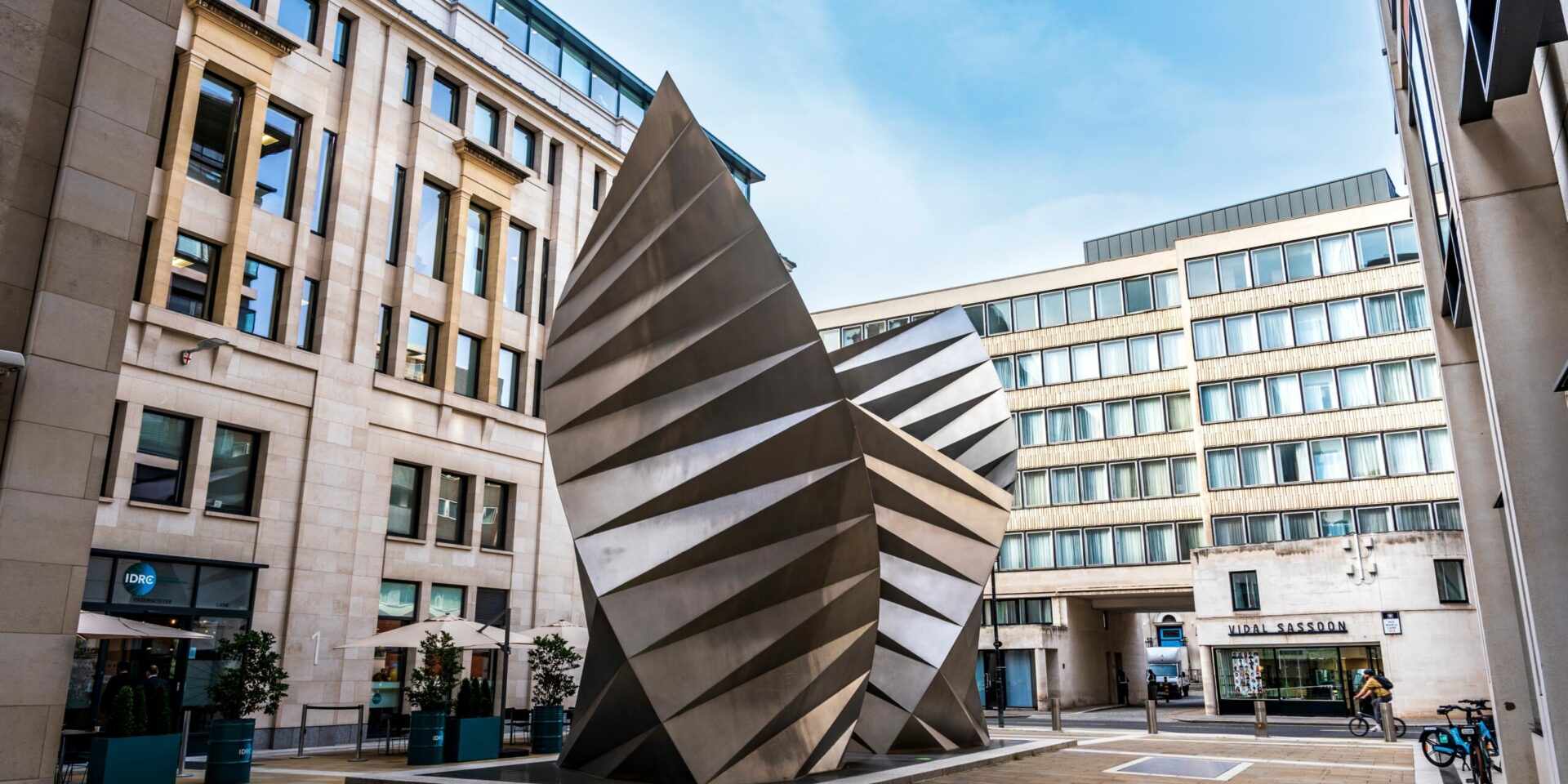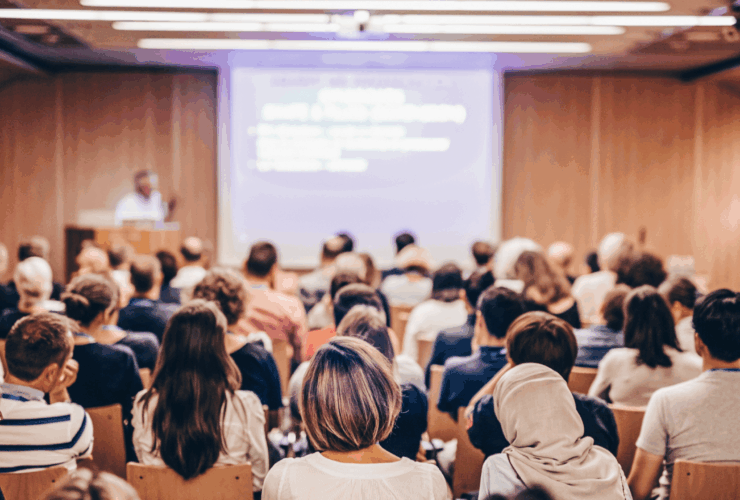Highlights from the 32nd World Forum of Mediation Centres
Highlights from the 32nd World Forum of Mediation Centres
Andy Rogers reflects on the diverse discussions and insights shared at the 32nd UIA Union Internationale des Avocats World Forum of Mediation Centres, which brought together over 150 delegates from 28 countries. Hosted for the first time in London with support of CEDR and IDRC, the event commenced with remarks by Lady Justice Asplin, highlighting England’s significant strides in mediation. CMC Chair Rebecca Clark, Deputy Chair Nicolas Fournier and Programme Manager Victoria Harris were among the guest speakers.
BY ANDY ROGERS
The International Association of Lawyers (UIA) World Forum of Mediation Centres is a two-day conference that brings together commercial mediation practitioners, alongside lawyers, academics, trainers and members of the business community to share insights and learning about the development of mediation globally.
For the first time, this Forum was held in London with the support of the Centre for Effective Dispute Resolution (CEDR) and the International Dispute Resolution Centre (IDRC) and took place from 5 – 6 April, 2024.
With over 150 delegates from 28 countries taking part in 13 different sessions it proved to be a melting pot of different expertise and experience.
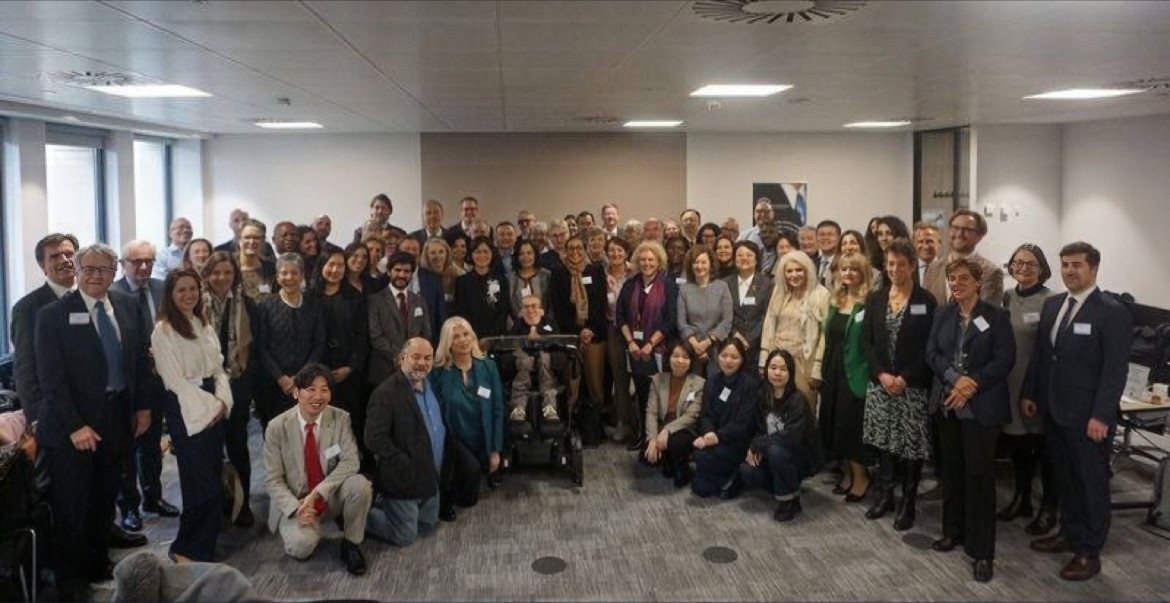
Opening the Forum and Opportunities for Mediation
The conference was opened by Jacqueline Scott, of Fortney & Scott, current UIA President, Fabienne Van der Vleugel, of VDV Advocats, and Ross W. Stoddard III, Attorney-Mediator, the Co-Presidents of the UIA World Forum of Mediation Centres.
They were joined by Andy Rogers of CEDR, Director of IMI and CMC as a fellow organiser of the London conference and Nick Emmerson, President of The Law Society of England & Wales.
James South the Chief Executive of CEDR in his opening address, reflected on the role of mediation and the wider conflict engagement field.
“As we have seen from only the last 4 years, the scope and scale of conflicts in society has increased dramatically with political conflicts, workplace activism around wider issues, changing relationships with hybrid working, emerging environmental, societal and governmental (ESG) conflict and disputes.
And it’s not these disputes themselves which are the problem, as society transforms and evolves it is normal for there to be conflict fault lines. So, it’s not the “what” of the conflict but the “how” we resolve them that has broken down. Increased polarisation is amplified by social media. People talking in the extremes – everything is black or white – and no one is listening to understand what is in between– the rainbow of colour between the black and white.
It is in this wider conflict space that CEDR believes it has an important role to play, helping society have the conversations in the rainbow. This is a role I believe our whole field need to engage in.”
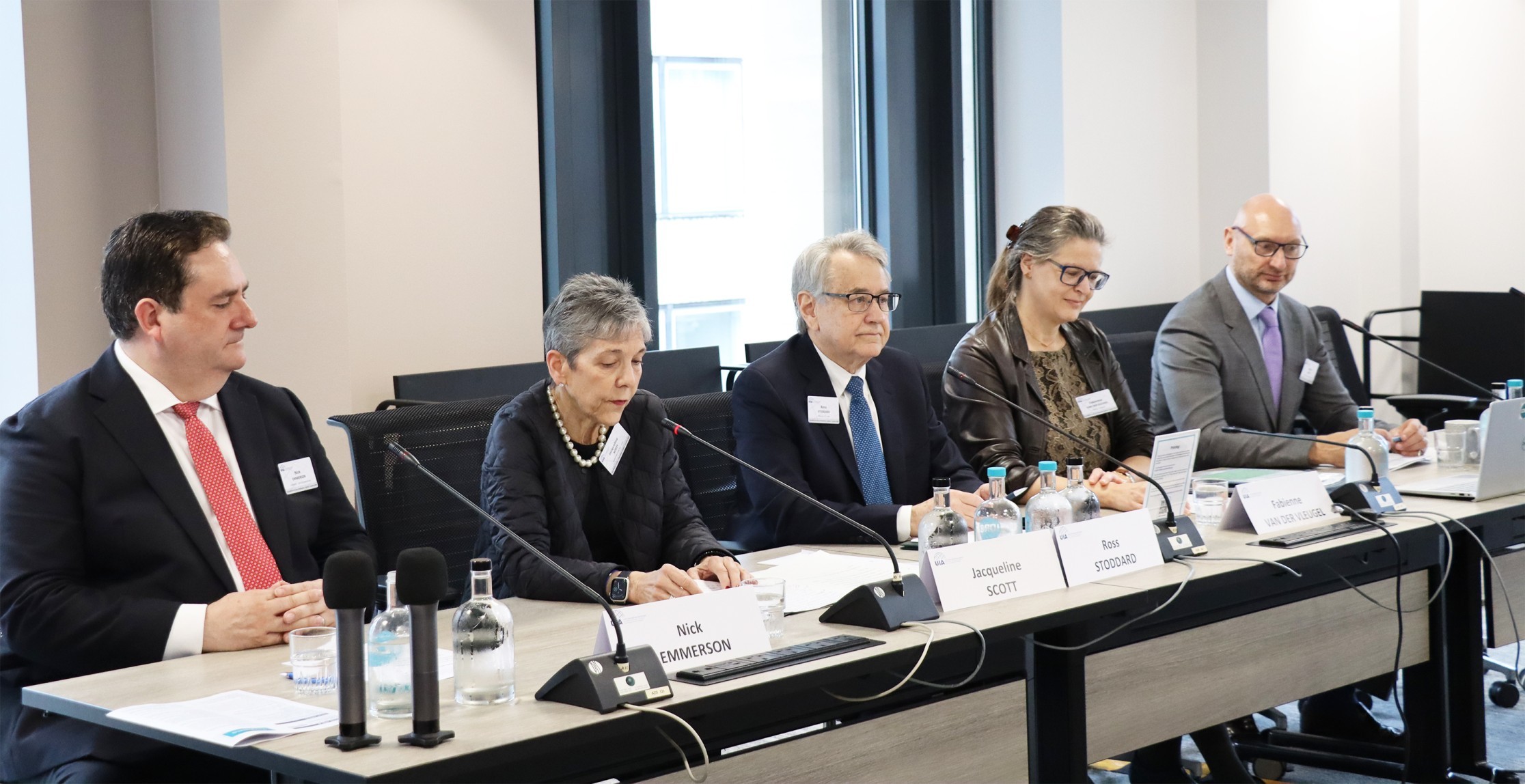
Keynote Remarks
The forum commenced with introductory remarks by Lady Justice Asplin, Dame Sarah Asplin DBE KC, of the Court of Appeal of England and Wales, who underscored the significant development of mediation in England, noting its ascent to “centre stage” in civil justice proceedings.
Later Lord Bellamy KC, Parliamentary Under Secretary of State at the Ministry of Justice, emphasized the government’s staunch support for mediation as the preferred method for dispute resolution in contemporary society.
Their remarks set the tone for the conference, affirming the widespread recognition and adoption of mediation as an essential tool for resolving disputes.
Individual Sessions
Session 1 – Landscape of Mediation in the UK
Session 2 – How Mediation Successfully Became an Integral Part of Dispute Resolution Systems
Session 3 – Feedback and Reports about Mediation in China
Session 4 – Will the Emergence of New Types of Conflict Involving AI Systems Lead to New Perspectives for Mediation (‘Mediation 2.0’)
Session 5 – The Judge and The Amicable Settlement
Session 6 – Mediation Providers: Role and Functions of Institutional Mediation Contact Points in Practice
Session 7 – Harmonizing Prosperity: Mediating ESG and Human Rights Issues in Africa
Session 8 – Has the Time for Investor-State Mediation Arrived?
Session 9 – Conflict Management and Mediation in International Multicultural Organisations
Session 10 – Training Tomorrow’s Problem Solvers Today: Modern Legal Education
Session 11 – When Many Collide: Dealing with Multiple Party Disputes
Session 12 – A Practical Guide to Navigating Bias in Mediation
Session 13 – Specialisation and the Role of Context in Mediation
Update from the Mediation Centres
The event was successfully managed by Colette Surin from UIA.
Session 1 – Landscape of Mediation in the UK
The discussion provided a snapshot of the dynamic mediation landscape in the UK. Despite funding challenges, mediation has thrived, with thousands of cases mediated annually across commercial, family, and community disputes.
Looking ahead, 2023 marked pivotal developments. The UK Government integrated commercial mediation into small claims courts, with plans for further expansion. Landmark Mediation Case Law granted judges authority to order mediation when appropriate, signifying a significant shift. Ongoing consultations on family mediation underscore efforts to enhance practices.
Moderated by James South, the panel featuring CMC Chair Rebecca Clark Beverley Sayers of the Family Mediation Council, and CMC Programme Manager Victoria Harris representing Community Mediators, highlighted these advancements, emphasising mediation’s growing role in resolving disputes across various domains.

Session 2 – How Mediation Successfully Became an Integral Part of Dispute Resolution Systems
The Forum provided a comprehensive examination of the global landscape of mediation integration. The speaker, Honorable James Allsop AC, former Chief Justice of the Federal Court of Australia, Catherine Cotsaki, President of the Hellenic Union of Mediators of Greece, Georges Hanot, Founding Partner at Con-Sent ADR in Belgium, Kimberlee Kovach, Mediator, Arbitrator and Trainer from Austin USA, and Thiruvengadam BC, Senior Advocate, International Mediator & Arbitrator, India, shared their experiences and insights gleaned from their respective countries.
Under the guidance of Moderator Ross W. Stoddard III, discussions delved into the intricacies of successful integration strategies, navigating challenges inherent in legal systems, and the pragmatic lessons garnered along the way.
Attendees were immersed in nuanced discussions, gaining valuable perspectives on the complexities of advocating for mediation within diverse jurisdictions. Insights included the recognition of hurdles when proposing change, the varying degrees of success in integration across different regions, and the imperative of employing a diverse array of tools and approaches to promote mediation effectively.

Session 3 – Feedback and Reports About Mediation in China
The session began by paying tribute to Stefano Pavletič, a respected colleague and business consultant, who was due to lead the session but very recently passed.
It the proceeded to delve into feedback and reports regarding mediation in China, particularly focusing on experiences shared by providers and managers engaged in resolving international disputes with Chinese counterparts.
Moderator F. Peter Phillips led the discussion, alongside speakers Fang Wang, Deputy Sec Gen of CCPIT, Beijing, Fan Zhiyong Vice President, Head of IPR Department at Huawei Technologies, Shenzhen, and Nicolas Fournier, Deputy Chair of Civil Mediation Council, Member of CEDR and former MD of a business in China.
Participants explored the evolving landscape of alternative dispute resolution tools and mediation in China, gaining valuable insights into practical experiences and challenges encountered by stakeholders involved in international dispute resolution. Insights provided first-hand perspective on mediation practices in China, offering valuable context and understanding.
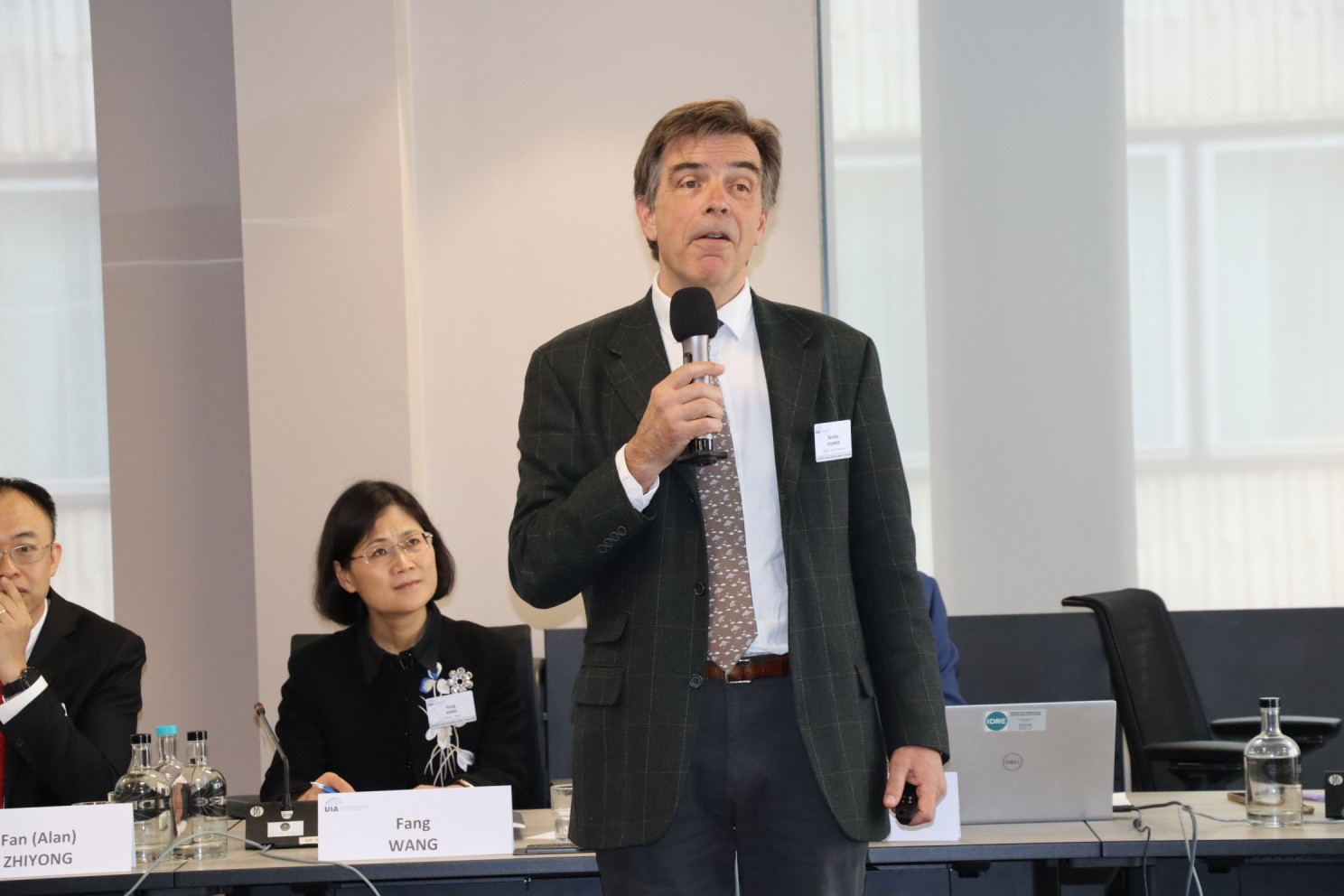
Session 4 – Will the Emergence of New Types of Conflict Involving AI Systems Lead to New Perspectives for Mediation?
The session delved into the nuances of conflict resolution in the era of Artificial Intelligence, contrasting open and closed AI creativity and the complexities of data mining.
Moderator and Speaker Pierre Kirch Avocat à la Cour (Paris/Brussels), Mediator, Adjunct professor on the Law of Artificial Intelligence, Catholic University of Paris led the discussion, alongside speakers James South of CEDR and Ian McDougall, Executive Vice President and General Counsel for LexisNexis, UK.
Amidst the rapid advancement of AI tools, participants contemplated the emergence of novel conflicts necessitating innovative mediation approaches. As AI systems grow in complexity, mediators face the challenge of navigating disputes involving massive volumes of data and intricate technological dynamics. In this evolving landscape, the systemic approach of mediation was presented as a promising avenue for devising innovative solutions.
The conversation expanded beyond traditional business disputes, considering how generative AI models like ChatGPT impact conflicts in various facets of contemporary life. This prompted contemplation of a potential “Mediation 2.0” where mediators must become proficient in AI dynamics to effectively navigate emerging conflicts.
The discussion provided a thought-provoking exploration of the intersection between AI technology and conflict resolution, leaving attendees with questions about the future role of mediators in an increasingly AI-driven world.

Session 5 – The Judge and the Amicable Settlement
The session delved into the multifaceted role of judges in fostering amicable settlements. Moderator and Speaker Gérard Kuyper Alterys Law & Mediation, Brussels led the discussion, accompanied by speakers Camilla Hoelzer, President of GEMME Germany, Caroline Verbruggen, Judge at the Brussels Court of Appeal, and Frédérique Agostini, Judge at the Court of Cassation, Paris.
Participants gained insight into the dual responsibilities of judges: rendering judgements on case issues and facilitating voluntary dispute resolution. Civil courts play a crucial role in aiding parties to resolve disputes amicably, alleviating the need for formal court decisions.
Judges shared their perspectives on their role in the settlement process and the strategies they employ to empower parties to reach mutually satisfactory resolutions. The conversation underscored the importance of judicial involvement in settlement facilitation, shedding light on the nuanced approaches employed by judges to guide parties towards resolution.
Attendees gained valuable insights into the collaborative efforts between the judiciary and disputing parties, highlighting the pivotal role of judges in promoting amicable settlements within the legal system.
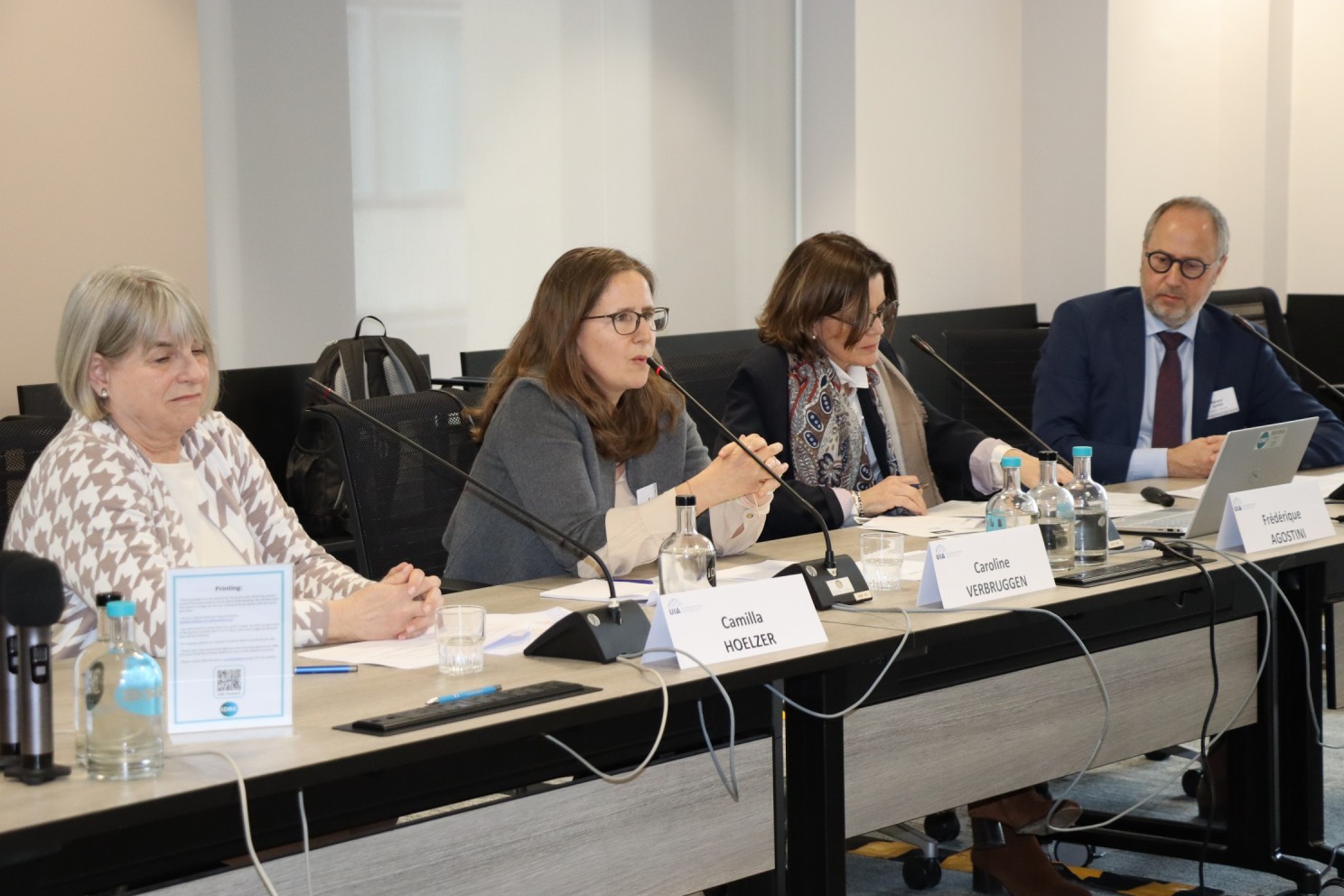
Session 6 – Mediation Providers: Role and Functions of Institutional Mediation Contact Points in Practice
The session explored the crucial role and functions of institutional mediation contact points in practices.
Moderator and speaker Dr Jan Kayser Director, Centre de Médiation Civile et Commerciale, Luxembourg led the discussion, accompanied by speakers Nicolas Mohr Directeur Général, Médiateur des Entreprises, France, Andy Rogers of CEDR and Director of CMC and IMI, and Bart De Moor, President of bMediation and Partner Strelia, Belgium.
Attendees delved into the evolving landscape of mediation providers, recognizing the need for specialization and enhanced services to attract users in a competitive dispute resolution environment. The European Code of Conduct for “Mediation Providers”, adopted by the European Commission for the Efficiency of Justice, served as a guiding framework for understanding the roles and functions of these pivotal entities.
Insights were shared on the diverse functions fulfilled by mediation providers in a pre-mediation context and throughout the mediation process. Drawing upon examples from Belgium, France, Luxembourg, and the United Kingdom, participants gained valuable perspectives on the practical application of institutional mediation contact points.
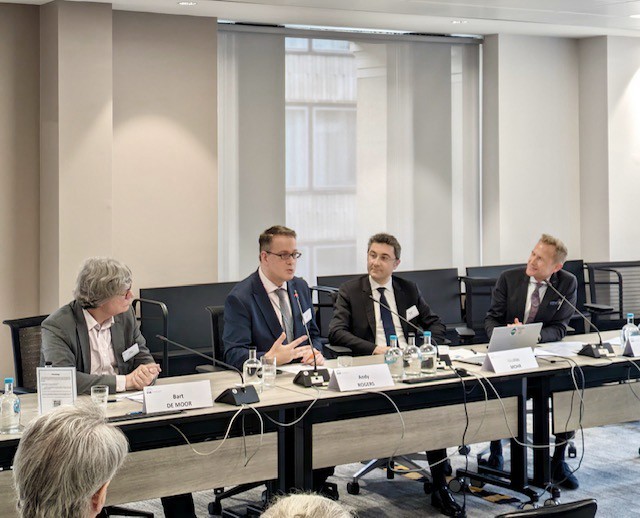
Session 7 – Harmonising Prosperity: Mediating ESG and Human Rights Issues in Africa
The session provided a deep dive into the critical role of mediation in addressing ESG issues, as well as human rights challenges within the African context.
Moderator and Speaker Thomas Gaultier Past President of the UIA Mediation & Conflict Prevention, and of Abreu Advogados, Lisbon led the discussion, accompanied by speakers Felicity Steadman, Director of Conflict Dynamics and CEDR Mediator and Eve Pienaar, CEDR ESG Mediator.
Participants explored the significance of mediation as a powerful tool for resolving complex issues related to sustainable development in Africa. Real-world case studies were examined, showcasing successful mediation strategies that have led to positive outcomes for businesses, communities, and individuals.
The session emphasized the importance of culturally sensitive mediation approaches and collaborative models in building a more equitable and socially responsible future for projects across the continent. Attendees engaged in interactive discussions, gaining valuable insights, and contributing to the advancement of ESG and human rights mediation in Africa.
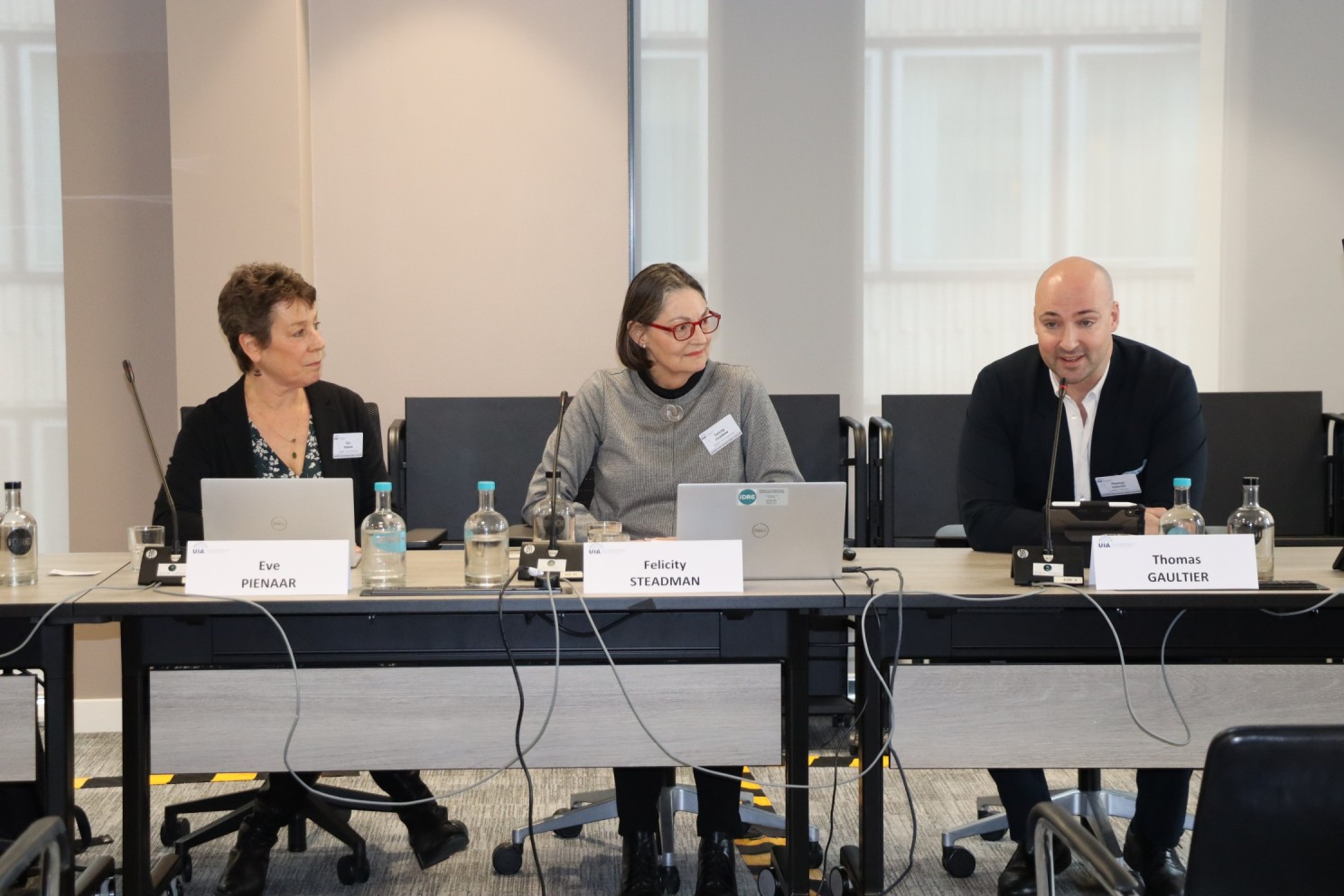
Session 8 – Has the Time for Investor-State Mediation Arrived?
The Session centered on the rising relevance of investor-state mediation, acknowledging its potential to address non-legal and non-financial dimensions of disputes, a necessity increasingly acknowledged by governments, companies, and NGOs.
Led by moderator Antonio M. Prida Peón del Valle, of the Mediation Commission of the Ilustre y Nacion-al Colegio de Abogados de México and Founding partner of Curtis, Mallet-Prevost, Colt & Mosle, the panel examined the evolution of mediation within this context, citing key developments such as the Energy Charter Treaty and the ICSID Mediation Rules.
Speakers James South, CEO CEDR, Wolf Von Kumberg CEDR Mediator and Member Arbitra, and Ella Davies, Senior Lawyer, Freshfields Bruckhaus Deringer, brought diverse perspectives to the discourse, exploring practical challenges and opportunities associated with investor-state mediation.
Their insights underscored the growing recognition of mediation’s role in reshaping dispute resolution approaches within the global legal landscape and some of the challenges it faces moving forward.
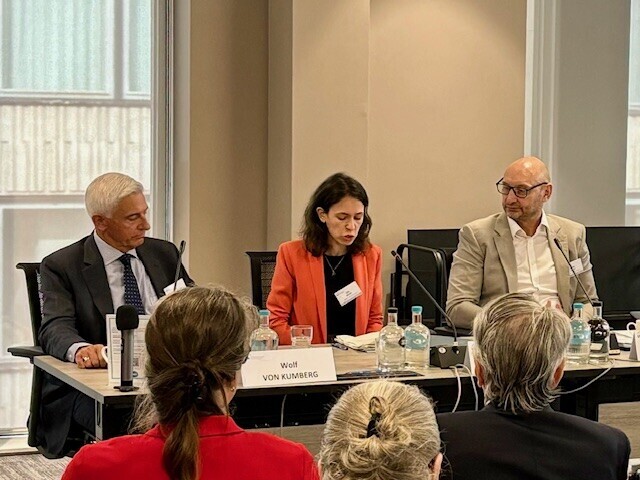
Session 9 – Conflict Management and Mediation in International Multicultural Organisations
The conference delved into evolving practices in conflict management within international organizations, examining the mediator’s role and the dynamic of long-term relationships.
Moderated by Eve Pienaar, a seasoned CEDR Mediator, the session explored how mediators collaborate with organizations and the implications of long-term obligations.
Speakers Dr Françoise Borel-Clayeux, former OECD mediator, and Martine Van Der Wielen, former Council of Europe Mediator, shared insights from their extensive experiences, challenging traditional assumptions and providing productive approaches to conflict management. Participants engaged in a constructive dialogue aimed at driving meaningful change within international organisations.

Session 10 – Training Tomorrow’s Problem Solvers Today: Modern Legal Education
The session delved into the transformative shifts underway in American legal education, spotlighting the growing emphasis on practical skills over traditional lectures and tests.
Speakers Kris Franklin Wallace Stevens Professor of Law, Director of Academic Initiatives and F. Peter Phillips, Distinguished Adjunct Professor & Director of the ADR Skills Program both of the New York Law School, provided insights into the evolving landscape of experiential training and its implications for the legal profession.
They highlighted the importance of experiential learning, collaboration through competitions, clinical learning and changing how competencies are assessed. Additionally, Cezary Rogula Attorney and Mediator, Vice President, Mediation Centre at the Chamber of Commerce, Krakow, offered a perspective from Poland, emphasizing the core value of assisting clients in determining and achieving their interests. The discussion underscored the imperative of adapting legal education to meet the demands of a dynamic legal environment.
Session 11 – When Many Collide: Dealing with Multiple Party Disputes
The session delved into the intricacies of resolving disputes involving multiple parties, each hailing from diverse countries, cultures, and legal systems.
Moderated by Sara Sanford, of Benchmark International ADR, a seasoned mediator and attorney, the panel explored the heightened complexities and stakes associated with such mediations. Speakers Birgit Sambeth of the Swiss Bar Association and of Altenburger, Lisa Savitt of Benchmark International ADR, Washington, and Dr Karl Mackie, Founding President of CEDR, offered invaluable insights drawn from their extensive experience.
The discussion unveiled hypothetical scenarios illustrating the challenges of multi-party mediations, including addressing cultural disparities, selecting suitable mediators for international settings, and strategizing for success in both in-person and virtual contexts.
Emphasis was placed on delicately balancing the interests of each party while sharing practical tips for handling these intricate mediations. The session underscored the necessity of nuanced approaches and effective communication in navigating the complexities of multi-party dispute resolution.
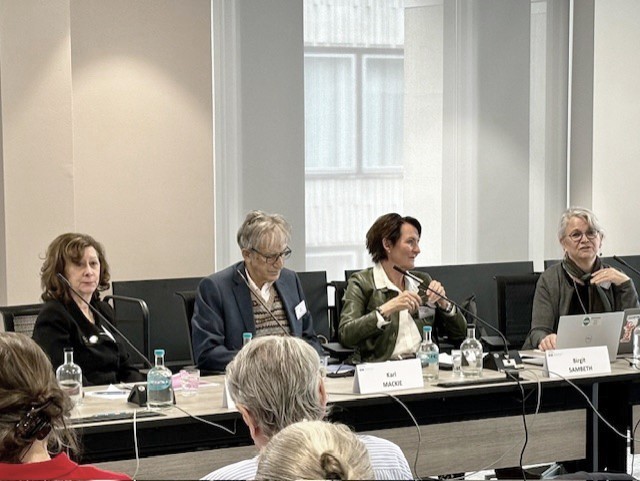
Session 12 – A Practical Guide to Navigating Bias in Mediation
The session delved into the pervasive influence of bias in mediation and its profound impact on behaviour and decision-making.
Moderated by Susanne Schuler, CEDR Director of Training & Consultancy at CEDR, the panel explored the various forms of cognitive and social bias inherent in human nature.
Speakers Paul Latreille, Professor of Management, Sheffield University Management School, UK and Dean M. Kilgore, Attorney-Mediator, Austin, USA, provided insights into the subtle biases manifest in mediation processes and discussed strategies to identify, reduce, and mitigate their effects.
Drawing parallels to Daniel Kahneman’s analogy of a fish in water, the discussion highlighted the challenge of recognising bias when it is deeply ingrained. Emphasising the importance of acknowledging and addressing bias, the panel underscored the need for mediators and mediation centres to adopt proactive.
Practical tools and strategies were shared to foster awareness and mitigate bias ultimately enhancing the effectiveness and integrity of the mediation process.
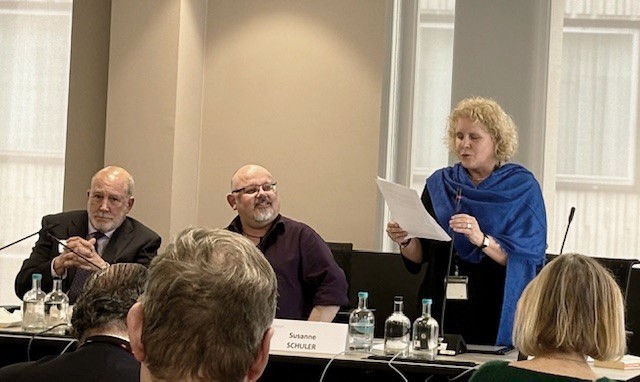
Session 13 – Specialisation and the Role of Context in Mediation
The session delved into the pivotal role of context in mediation, emphasizing its transformative impact on relationships and conflict resolution.
Moderated by Dr Rosemary Howell, Professorial Visiting Fellow, of the University of New South Wales, the presentation explored insights from scholars like Chris Argyris and Daniel Kahneman, underscoring the significance of context in processing information and making judgements.
Speaker Emma-May Litchfield Workplace Facilitator at Department of Health and Human Services, Victoria, Australia, looked into the evolving landscape of mediator practice, highlighting the need for flexibility and adaptability.
Practical examples were shared to illustrate how mediators navigate situation-specific contexts, fostering specialization while adhering to common standards. Additionally, a dynamic model was presented to simplify the recognition of system-based specializations, providing a framework for conflict resolution professionals to excel in diverse contexts.
The Next UIA Forum for Mediation Centres
During the closing session of the conference, it was revealed that the next 33rd UIA World Forum of Mediation Centres will take place in Vienna in January 2025, followed by the 34th Forum scheduled in Sydney in September 2025.
Learn more about the 32nd UIA World Forum of Mediation Centres here.
This article was first published by CEDR.

Andy Rogers is a Trustee and Board Director of the CMC and part of the Executive Team at CEDR, working with clients and members, monitoring standards and liaising with industry, government and the media on behalf of the organisation. He is also a practicing mediator, with clients ranging from private individuals through to multinational organisations. Andy has consulted on numerous ADR projects in Europe, Asia, Africa and the Middle East. Prior to joining CEDR, he was a Senior Communications Account Director in two public relations consultancies.

